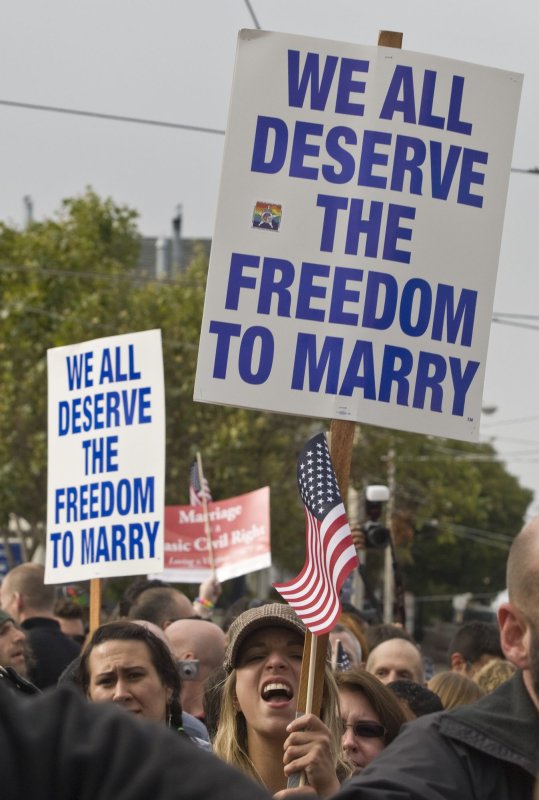SAN FRANCISCO, Jan. 4 (UPI) -- A U.S. appeals court has asked the California Supreme Court to decide whether proponents of the state gay marriage ban can defend the ban in court.
The federal appeals court turned for advice to the state high court as the principal interpreter of state law.















